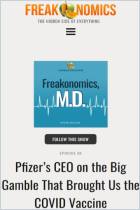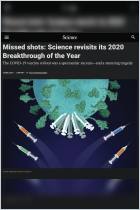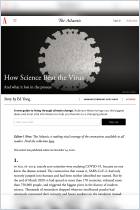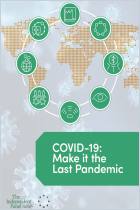
Book
Moonshot
Inside Pfizer's Nine-Month Race to Make the Impossible Possible
HarperBusiness,
2022
更多详情
From the book MOONSHOT: Inside Pfizer’s Nine-Month Race to Make the Impossible Possible by Dr. Albert Bourla. Copyright © 2022 by Pfizer, Inc. Reprinted by permission of Harper Business, an imprint of HarperCollins Publishers.
ISBN: 9780063210790
Pages: 240
ISBN: 9780063210790
Pages: 240
Recommendation
Following the 2019 onset of the COVID-19 pandemic, companies and individuals across business, government and the public health sectors worked tirelessly to discover and roll out a new vaccine in record time. Pfizer’s chief executive officer, Dr. Albert Bourla, describes how he drove innovation while leading a transformational culture change during this unprecedented time. Pfizer’s success in vaccinating millions proved the seemingly impossible possible, says Bourla, as people ranging from researchers to regulators found ways to work together without sacrificing vaccine quality or values such as equity.
Summary
About the Author
Dr. Albert Bourla is the chairman and CEO of Pfizer.

















Comment on this summary